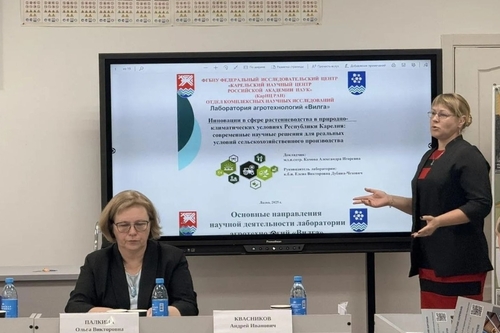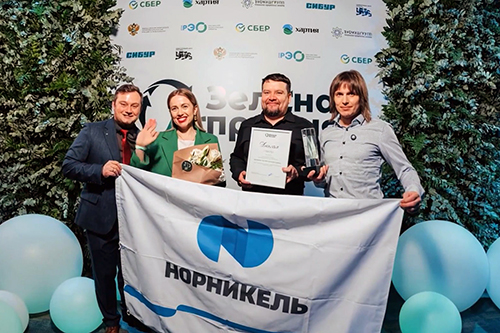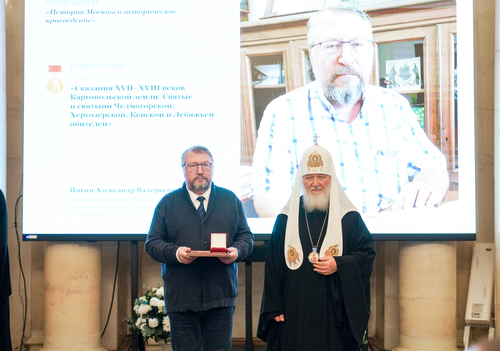Opening the seminar, Olga Bakhmet, KarRC RAS Director General reminded that relatively recently a significant part of our region was classified as belonging to the Arctic. As of now, six districts of Karelia - almost 40% of the republic's territory - are part of the Russian Arctic zone. Three of them, Kostomuksha urban district, Kalevalsky and Segezhsky Districts, were included in 2020. Their inclusion was substantiated by scientists from KarRC RAS.
– Our studies are not confined to northern parts of the Republic of Karelia. We make expeditions to the Arkhangelsk and Murmansk regions, participate in research teams for large-scale studies in Siberia and the Far East. Quite a few projects, including international ones, are connected with studies of other Arctic territories, - Olga Bakhmet informed.
Projects on topics related to the Arctic are implemented in various fields, including environmental, biomedical, and socio-economic. The new seminar will provide an opportunity to learn about and discuss the results of these projects both for staff of the scientific subdivisions of KarRC RAS and for third-party stakeholders - representatives of authorities, the business community, and educational institutions. This, in turn, can stimulate the search for new project ideas for integrated and specialized research.
The coordinator of the seminar is Dmitry Bazegsky, Leading Researcher at KarRC RAS. Speaking about the agenda of the first meeting, he remarked that the studies presented at it deal with social and socio-economic development issues and are related to the problems of human life in the High North.
Leading Researcher at the Regional Economic Policy Department of the Institute of Economics KarRC RAS Maria Pitukhina told about the results of the large-scale project "Institutional Engineering of Single-industry Towns in the Arctic Zone - Modernization and Sustainable Development", supported by a grant from the Russian Science Foundation. The study has shown that over the past five years, an average of 72 thousand people left Arctic monotowns every year. The most numerous groups of departees are people aged 20-29 and older than 50. The annual migration into single-industry towns was about 33 thousand people.
Leading Researcher at the Institute of Biology KarRC RAS, Research Area Leader at the Center for Biomedical Research KarRC RAS Lyudmila Lysenko familiarized the participants with a study of the consequences of the coronavirus infection among citizens of the Republic of Karelia. Scientists discovered, in particular, that 30-40% of patients do not regain their health completely after the disease, and 30% of cases develop a post-Covid syndrome lasting up to nine months.
The final talk focused on economic issues. Alexander Volkov, Researcher at the Department for Institutional Development of Regions at the Institute of Economics KarRC RAS, presented an overview of studies of the human capital and economic space of the Karelian Arctic. Scientists have identified key problems affecting the migration sentiments in Arctic communities. The reasons for people to leave the North are a shortage of high-paying jobs, lack of institutions for continuing education, and inaccessibility of adequate medical services.
More information about the results of the projects will be available soon on KarRC RAS website. The next seminar is expected to be devoted to environmental issues.
News

April 5, 2023
The science-to-practice seminar "Integrated Development of Arctic Territories: Expert Opinion" was held at KarRC RAS. It is meant to become a regular event. In this first meeting, scientists presented the results of research on modernization of single-industry towns, studies of human capital in the Arctic, as well as the consequences of the coronavirus infection among Karelian citizens.
See also:

December 8, 2025
Staff of the Vilga Laboratory presented scientific developments in agritech at the year-end 2025 meeting at Agriculture Ministry
Staff of the Vilga Agrotechnology Laboratory of the Department for Multidisciplinary Research KarRC RAS took part in the session “Results of the agricultural season 2025 and plans for 2026” held in the Village of Ladva. They presented the laboratory’s major research areas and scientific developments.
Staff of the Vilga Agrotechnology Laboratory of the Department for Multidisciplinary Research KarRC RAS took part in the session “Results of the agricultural season 2025 and plans for 2026” held in the Village of Ladva. They presented the laboratory’s major research areas and scientific developments.

December 5, 2025
Olga Bakhmet proposed KarRC RAS as the host for the scientific conference on the study of Karelia’s water bodies
Doctor of Biological Sciences Olga Bakhmet took part in a meeting of the Council on Fish and Fisheries Sector Development held in Petrozavodsk on December 2nd. Active participants of the meeting were representatives of the executive and legislative authorities of the Republic of Karelia, scientists, and members of the business community. The meeting focused on prospects for the development of the sector in Karelia, utilization of seaweed resources in the White Sea, increasing production volumes, and introducing new types of products.
Doctor of Biological Sciences Olga Bakhmet took part in a meeting of the Council on Fish and Fisheries Sector Development held in Petrozavodsk on December 2nd. Active participants of the meeting were representatives of the executive and legislative authorities of the Republic of Karelia, scientists, and members of the business community. The meeting focused on prospects for the development of the sector in Karelia, utilization of seaweed resources in the White Sea, increasing production volumes, and introducing new types of products.

December 4, 2025
Project to roll out artificial instream egg incubators wins the Green Prize 2025
The Russian Environmental Operator awarded the winners of the Green Prize 2025. The project recognized as the best in the "Sustainable Practices in the Agricultural Industry" category is "An Integrated Technology with Artificial Nests for Fish Egg Incubation". The devices for the reproduction of young salmonid populations were designed at the Karelian Scientific Center RAS and tested in collaboration with Kola Mining and Metallurgical Company JSC (part of Nornickel). The incubators are being successfully used on rivers in northern Karelia and the Murmansk Region.
The Russian Environmental Operator awarded the winners of the Green Prize 2025. The project recognized as the best in the "Sustainable Practices in the Agricultural Industry" category is "An Integrated Technology with Artificial Nests for Fish Egg Incubation". The devices for the reproduction of young salmonid populations were designed at the Karelian Scientific Center RAS and tested in collaboration with Kola Mining and Metallurgical Company JSC (part of Nornickel). The incubators are being successfully used on rivers in northern Karelia and the Murmansk Region.

December 3, 2025
Literature scholar Alexander Pigin was awarded Makarius’s Prize for his treatise “17th-18th Century Tales of the Kargopol Land”
Leading Researcher of the Institute of Linguistics, Literature and History KarRC RAS Alexander Pigin was awarded The First Prize in Memoriam of Metropolitan Macarius (Bulgakov) of Moscow and Kolomna for his treatise “17th-18th Century Tales of the Kargopol Land. Saints and Sanctities of Chelmogorskaya, Hergozerskaya, Kenskaya and Lebyazhiia Monasteries”. The Macarius Prize is one of the main awards in the humanities in Russia.
Leading Researcher of the Institute of Linguistics, Literature and History KarRC RAS Alexander Pigin was awarded The First Prize in Memoriam of Metropolitan Macarius (Bulgakov) of Moscow and Kolomna for his treatise “17th-18th Century Tales of the Kargopol Land. Saints and Sanctities of Chelmogorskaya, Hergozerskaya, Kenskaya and Lebyazhiia Monasteries”. The Macarius Prize is one of the main awards in the humanities in Russia.









